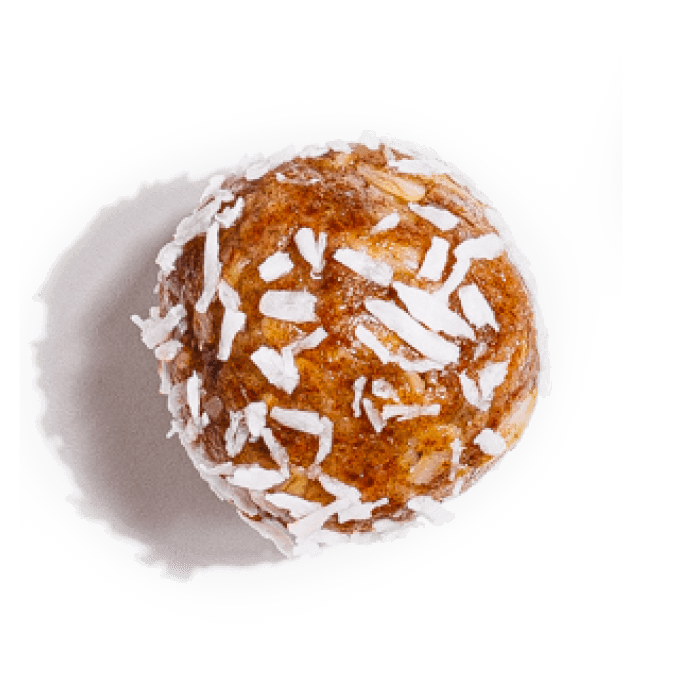By: Louise Gottsche
Once baby is born, it's often all about their needs, ensuring they get enough sleep, nutrition and of course, lots of love. But, just because baby takes center stage, doesn't mean a mother's nutritional needs should take a backseat. In fact, a mother's nutritional needs during this critical first 1000 days when baby is most reliant upon mom is incredibly important to set baby up for lifelong health. Read on for 6 reasons new moms need nourishment during this stage and why it's so important.
The importance of nourishing new moms
1. Optimal postpartum nutrition benefits both mama and baby
With so much focus on the baby, mamas tend to forget that they have just undergone a major physical event themselves. During the fourth trimester your baby is adjusting to the world and you’re adjusting to your baby. Mamas need support during this period and self-care still matters so that you don’t lose yourself during this period. Eating well is one way of getting this right. Nutrients are required to replenish nutrient stores, and to support lactation. It is also required for optimal functioning and will affect baby's flavor preferences for life.
2. Lactation requires energy
Breastfeeding mamas require about 500 additional kcal/day compared to non-pregnant women. (Read more about breastfeeding nutrition 101 here)
Whilst pregnant, most mamas will store an extra 5 to 10 pounds in tissue, mainly as fat, to help their bodies prepare for breastfeeding. If mamas do not increase their energy intake, their body stores will be used to maintain lactation. This is why it is not unusual for mamas to lose weight after the first postpartum month.1
3. Your diet affects your breast milk quality
Weight loss whilst breastfeeding usually does not impact the quantity or quality of breast milk, but maternal deficiencies may. Requirements for protein and many micronutrients increase during breastfeeding compared to pregnancy with the exception of vitamins D and K, calcium, fluoride, magnesium, and phosphorus.1
Some nutrients can’t be supplied by your body, they have to come from your diet. These nutrients are vitamin A, B6, B12, folate, iodine, selenium and some fatty acids.1,2 When mamas have a deficiency in these nutrients, the levels in their breast milk will also be low. And this may affect a baby’s development, including brain development. Fortunately, these vitamin concentrations in breast milk respond well to maternal nutrient intake.1
Eating well whilst breastfeeding, enhances the quality of your breastmilk which contributes to enhanced nutrition for your baby. Optimal early childhood nutrition may have positive long-term effects on health, cognitive development, human capital acquisition, and economic productivity in adulthood.3
4. Nutrients help you to make good decisions
All new mamas want the best for their babies. New mamas require adequate nutrition, to enable reasoning and decision making for caregiving. This is because brain function requires a continuous supply of nutrients, including macronutrients, micronutrients, and fatty acids.4
5. Not just body, but mind as well!
Eating for energy and breastmilk production are not novel concepts to most mamas, but did you know that some nutrient deficiencies may contribute to postpartum depression? There is some evidence linking postpartum depression with deficiencies in omega 3 fatty acids, B vitamins (especially riboflavin), vitamin D, and trace minerals.5
6. Taste matters before their first bite
Your baby's ability to perceive flavors begins in utero and then continues whilst you are breastfeeding. Amniotic fluid and breast milk contain molecules derived from your diet. Early experience of food flavors serves as the foundation for the continuing development of food preferences across baba’s lifespan.6
Eating a varied diet can expose your baby to many different flavors through your breastmilk. Breastfed infants from mothers who consume a variety of flavors tend to be less picky and more willing to try new foods and may even affect their preference for certain flavors when they are an adult!7
In conclusion, mamas need optimal nutrition for a strong mind and body to help take care of their babas and to support them with a great start in life. What you eat affects which nutrients and flavor molecules your baba receives and both of these have long lasting effects.

References:
- Kominiarek, M.A. and Rajan, P. 2016. Nutrition Recommendations in Pregnancy and Lactation, Med Clin North Am., 100(6): 1199–1215. doi:10.1016/j.mcna.2016.06.004.
- Innis, S.M. 2014. Impact of maternal diet on human milk composition and neurological development of infants. Am J Clin Nutr. 99(3):734S-41S.
- Adams, K.P.; Adu-Afarwuah, S.; Mridha, M.K.; Oaks, B.M.; Matias, S.L.; Arnold, C.D.; Kumordzie, S.M.; Okronipa, H., Ocansey, M.E. Dewey, K.G. 2020. The impact of maternal supplementation during pregnancy and the first 6 months postpartum on the growth status of the next child born after the intervention period: Follow-up results from Bangladesh and Ghana. Matern Child Nutr.;16:e12927.
- Prado, E.L.; Ashorn, U.; Phuka, J.; Maleta, K.; Sadalaki, J.; Oaks, B.M.; Haskell, M.; Allen, L.H.; Vosti, S.A.; Ashorn, P.; Dewey, K.G. 2018. Associations of maternal nutrition during pregnancy and post‐partum with maternal cognition and caregiving.Matern Child Nutr., 14:e12546.
- Lin, Y.; Chen, C.; Su, H.; Mu; S.; Chang, M.; Chu, P.; Li, S. 2019. Association between Postpartum Nutritional Status and Postpartum Depression Symptoms. Nutrients, 11, 1204; doi:10.3390/nu11061204.
- Ventura, A.K. and Worobey, J. 2013. Early Influences on the Development of Food Review Preferences. Current Biology, 23(9): R401-R408.
- De Cosmi, V.; Scaglioni, S.; Agostoni, C. 2017. Early Taste Experiences and Later Food Choices. Nutrients, 9:107; doi:10.3390/nu9020107.








